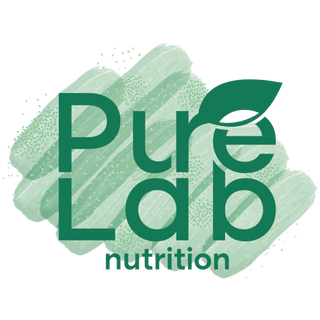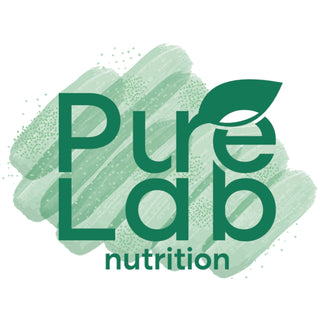Summary
The benefits of vitamin C
Best Time of Day to Consume L-Ascorbic Acid
Different Forms of Ascorbate to Consider
Natural vs. Synthetic: Which is the Best Choice?
Selecting the ideal galenic for your specific needs
Vitamin C Super Duos: When Ascorbic Acid Teams Up!
Practical advice: when and in what form should you take vitamin C?
FAQ
Boosted immune defense, powerful antioxidant action, and an energy boost that makes you want to dance the Macarena… Here’s vitamin C – also known as L-ascorbic acid – ready to energize your daily life!
A varied diet is usually enough to provide the famous recommended daily intake, estimated at 110 mg/day. But with our fruits and vegetables no longer quite what they used to be, sometimes a little extra vitamin C can be welcome.
But before you jump on the supplements, it's important to know when to take vitamin C to maximize its beneficial effects.
The benefits of vitamin C
Vitamin C: a natural ally to strengthen the immune system
Ascorbic acid contributes to the normal functioning of our immune system, thus strengthening our ability to effectively fight these unwanted external agents. 💪
Ascorbic acid: a powerful antioxidant to protect cells
Vitamin C protects our cells against oxidative stress caused by free radicals, the main culprits of premature aging. It also promotes the regeneration of the active form of vitamin E, a vitamin with multiple benefits for our body.
Ascorbate: a support in collagen synthesis
Vitamin C contributes to the normal and natural formation of collagen by our body. As a reminder, collagen is an essential structural protein found in our cartilage, teeth, gums, skin and blood vessels.
Vitamin C therefore plays a certain role in maintaining the strength of our bones, oral and cardiovascular well-being, as well as in improving the quality of our skin.
Vitamin C and vitality: effectively reduce fatigue
L-ascorbic acid increases the absorption of iron, which is needed to transport oxygen throughout the body, and therefore helps reduce tiredness and fatigue. It also supports the production of carnitine - an amino acid derivative essential in the conversion of fats into energy - helping to maintain optimal energy levels.
In order to maximize its full effects on the body, ascorbic acid should be taken at strategic times. ⌚
So when exactly should you take your vitamin C?
Best Time of Day to Consume L-Ascorbic Acid
Optimal in the morning: like a natural energy booster
Taking vitamin C in the morning boosts energy by promoting the absorption of iron and carnitine, essential for energy production, which you will consume throughout the day.
However, beware of rumors! Contrary to what you might hear, taking vitamin C in the evening, at the doses recommended by ANSES, does not disrupt sleep. 😴
On the contrary, it could even promote better nighttime recovery and regeneration of the body.
With meals: to maximize absorption and beneficial effects
It is recommended to take vitamin C with meals. This facilitates its absorption by the body and reduces the risk of digestive discomfort that can occur when taking it on an empty stomach.
☺️ And for sensitive intestines, the liposomal form of vitamin C offers better tolerance and smoother, more gradual absorption.
Essential during periods of physical or psychological fragility
Our need for vitamin C increases during the winter months, periods of stress, intense fatigue or during convalescence. But you still need to know which galenic form to choose. 🤔

Different Forms of Ascorbate to Consider
Natural vs. Synthetic: Which is the Best Choice?
L-ascorbic acid exists in two forms: the natural form, present in fruits and vegetables and often associated with flavonoid complexes that improve its absorption and effectiveness, and the synthetic form, produced in the laboratory.
And the cherry on the cake is that the two sources are equivalent. In other words, they would be absorbed and used in a similar way by the human body. These are in any case the conclusions published in Nutrients by researchers from the University of Otago in New Zealand.
The choice between the two therefore depends on your preferences: opt for natural sources like Acerola for a 100% natural vitamin C food supplement, or choose the synthetic form for a highly concentrated and precise supply of this vitamin.
Selecting the ideal galenic for your specific needs
Vitamin C is available in several convenient forms:
- The powder , ideal for those who prefer to mix it in drinks or smoothies for rapid absorption, or in case of difficulty swallowing;
- Capsules , practical and easy to swallow for a precise and transportable dose;
- The liquid , perfect for those who prefer quick and easy absorption, often without the need for water.
And to choose the form that’s best for you, consider your lifestyle and personal preferences. If you’re always on the go, capsules may be the perfect solution. If you’re looking for flexibility in dosage, powder may be a good option. As for liquids, they often offer fast absorption, ideal for those who need an instant energy boost.
Vitamin C Super Duos: When Ascorbic Acid Teams Up!
Vitamin C is a bit of a star vitamin, but did you know that it loves to have friends to maximize its benefits?
Spoiler alert: zoom in on the win-win combos! 🏆
Dynamic duo ✨ Vitamin C and zinc to boost immunity!
Ascorbate and zinc together make a killer team for your immune system! Vitamin C helps zinc be better absorbed, and this partnership strengthens your immune responses.
Result: your natural defenses are optimized to protect you against environmental challenges and maintain your fitness.
Vitamin C and spirulina combination 🚀 Improved vitality!
Another interesting combo: vitamin C and spirulina. Spirulina is a nutrient-rich superfood, but it does not contain vitamin C. Taking vitamin C at the same time as spirulina is a wise decision, because it fills this gap and gives the body what it needs to gain vitality.
Additionally, vitamin C boosts the absorption of non-heme iron found in spirulina… particularly beneficial for women who are iron deficient. 👏
Practical advice: when and in what form should you take vitamin C?
Morning or evening, synthetic or natural, capsules or powder… the answer depends only on you, because what works for one may not suit another. What is certain is that it is essential to adapt your vitamin C intake to your specific needs and your lifestyle.
Other small additional information is in the Frequently Asked Questions :
When should you not take vitamin C?
Avoid taking vitamin C if you have a history of kidney stones, as it is metabolized in the body into oxalic acid, which can promote the formation of stones in the urinary tract. Always consult a healthcare professional before adding it to your routine, especially if you are taking medications or have specific medical conditions.
Is it beneficial to take vitamin C every day?
Taking vitamin C daily is beneficial since your body cannot produce or store it. However, be sure to follow the recommended doses to avoid overdosing, which can lead to digestive discomfort.












